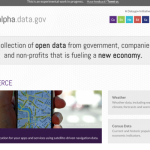While Syria’s Internet connection is back up, many of the sites hosted in Damascus have lost their domain names. As Brian Krebs of Krebs on Security reports , the domain registrar Network Solutions LLC has taken control of 708 domain names in the .com, .org, and .net top-level domains registered to Syrian organizations. The organizations affected by the seizure include the state-supported hacker group Syrian Electronic Army. Usually when there’s a domain name seizure, it’s the work of government agencies like Immigrations and Customs Enforcement or the FBI, or domains are shut down with the help of US Marshals as part of a court-sanctioned seizure related to malware. But in this case, Network Solutions appears to have seized the domains in question without coordinating with federal authorities, though its action was guided by federal regulations—domain name registration is one of the services explicitly banned in US trade sanctions enacted against Syria last year. Network Solutions has marked the seized domains with the notation “OFAC Holding,” indicating they were taken over in accordance with regulations propagated by the Department of the Treasury’s Office of Foreign Assets Control , a unit of Treasury’s Office of Terrorism and Financial Intelligence. The vast majority of the seized domains were pointed at IP addresses assigned to the Syrian Computer Society. As we’ve reported previously, Syrian President Bashar al-Assad, who was an Army doctor and ophthalmologist before being groomed to take over for his father, was head of the Syrian Computer Society in the 1990s. He became president in 2000. The Syrian Computer Society acts as Syria’s domain registration authority and regulates the Internet within Syria, and is also believed to be connected to Syria’s state security apparatus. The Syrian Computer Society registered .sy domain names for the Syrian Electronic Army’s servers, giving the hacker group a national-level domain name (sea.sy) rather than a .com or other non-government address, signifying its status as at least a state-supervised operation. Read 1 remaining paragraphs | Comments
See the article here:
Network Solutions seizes over 700 domains registered to Syrians

 jurvetson The Department of Homeland Security has apparently shut down a key mobile payments account associated with Mt. Gox, the largest Bitcoin exchange. Chris Coyne, the co-founder of online dating service OKCupid, tweeted out an e-mail he received from Dwolla this afternoon. The e-mail states that neither Coyne, nor presumably any other Dwolla user, will be able to transfer funds to Mt. Gox. Dwolla confirmed the change to the New York Observer , which first reported the story. Dwolla received a seizure warrant from a federal court. Read 4 remaining paragraphs | Comments
jurvetson The Department of Homeland Security has apparently shut down a key mobile payments account associated with Mt. Gox, the largest Bitcoin exchange. Chris Coyne, the co-founder of online dating service OKCupid, tweeted out an e-mail he received from Dwolla this afternoon. The e-mail states that neither Coyne, nor presumably any other Dwolla user, will be able to transfer funds to Mt. Gox. Dwolla confirmed the change to the New York Observer , which first reported the story. Dwolla received a seizure warrant from a federal court. Read 4 remaining paragraphs | Comments 
